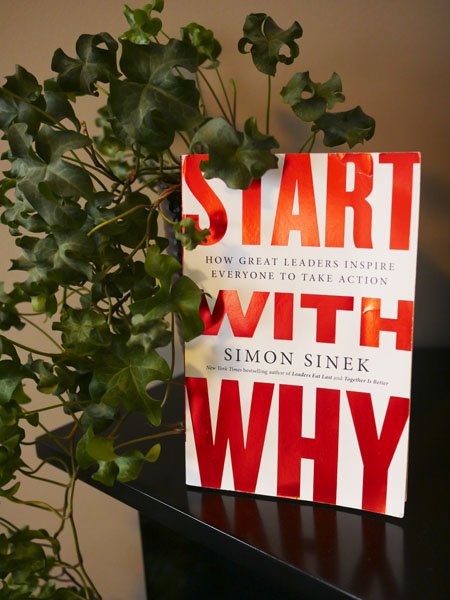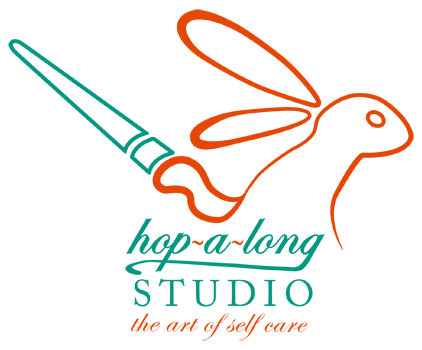
4 Lessons from Start With Why
This week I wanted to share with you 4 lessons from “Start with Why” by Simon Sinek. This book is part of my 2020 reading challenge, where I have chosen 12 books to read in 2020. I believe an important aspect to self-care is learning and seeing things from a new perspective. This book in particular has been very helpful for understanding my why, not just for this website but in my personal life.
Why I Chose “Start with Why”
Start with Why was a book recommended to me several years ago by a friend. It was also part of the recommended reading from my husband’s company. I had also viewed Simon Sinek’s Ted Talk Start with Why and I found it really interesting. I was intrigued with the idea of starting with why. I wanted to understand what motivates people and in turn, what motivates me.
With my experience in the corporate world, there was very little understanding of why these companies were in existence. The Why seemed to focus on making money and passing that money onto the shareholders. For me, that definitely wasn’t a good enough Why. The concept is that there is another way for companies to operate, that there can be a value in work besides a paycheck is something that I wanted to explore.
This book is not just about marketing and how companies operate. It’s about what good leadership looks like. It is about how we can come to a greater understanding about what we need in our careers and in our personal lives to find fulfillment. More than anything, I feel that this book can teach us about ourselves and help us to define our Why.
The 4 Lessons from Start with Why
Inspiration over Manipulation
The first lesson concept that resonated with me was the idea of inspiration over manipulation. It made me think about how many times in my day that I have to fight the influence of manipulation. It is the marketing from businesses telling us we need to buy something we really don’t need. Or someone trying to pressure us to change our opinions or our decisions even though we have already made our decision. These are moments where it’s not inspiration that makes us feel pressured, it’s manipulation.
It made me think about my website and the content I’m sharing. I am not a huge fan of marketing in general. I didn’t enjoy my marketing classes when I was in school. To me they felt inauthentic and manipulative. I don’t think that’s the case with all marketing, but especially with online websites, high pressure sales seems to be the model most people are following.
As I’m developing my website and getting more focused on my purpose, I really want to make sure that whatever marketing I do is authentic. I want to inspire instead of manipulate, and knowing that there are businesses out there that have done it effectively is really encouraging.
Start with Why was very illuminating in helping to understand why inspiration is the better road to travel. Manipulation brings with it fear, it does not breed loyalty. Short term gains can be made in business and even in life by manipulating people to believe what you believe. By manipulation we can convince them that our way is best. But in the long term, this does not work. If the people around us have strong values and beliefs, they will go back to what they believe. We need to be respectful of each other. Understanding that we may not be able to change their opinions but through time, trust and inspiration perhaps we can show a different opinion or way to live.
I love the idea of leading and influencing through inspiration. I am attracted to the brands and the people around me that make me feel inspired. They truly believe in what they are doing. They tell us about why they do what they do so that we can be inspired. It feels more congruent with our beliefs and values and helps us to take ownership in those things.
Trust Yourself
Trusting Yourself is a topic that I have talked about before on this website. Simon Sinek’s book talks about it more indirectly. He speaks about how trust affects our buying and decision making. Simon talks about how our buying decisions are not all logical. If we find a brand, company or person we trust, we will support what they are doing, not because they have the cheapest price or best features. It comes down to our beliefs and what the company or person believes.
A great example of this is Apple. They are often seen as a lifestyle brand because they resonate with people past price and features. Many who love Apple products are not looking for the best specs or deals. They trust and believe in what Apple has to offer. This is an example of the fact that we do not rely only on logic to make a decision, we rely on our emotions also.
Simon speaks about the limbic brain and how it is the part of the brain linked to the gut feelings and decisions. We do not make all decisions based on the analytical part of our brain. Far from it, there are many decisions we make based off of our emotions. It is not necessarily a negative thing. If we had to understand all the information available, both positive and negative to make every decision, we would live in indecision and become overwhelmed. We would never be able to make decisions.
It’s important to see the limbic brain as something that can help us. Analysis is good and understanding what you value is important. By trusting yourself enough you can start understanding that your gut feeling, that limbic brain is directing you in a particular direction for a reason. Instead of looking at emotions as a negative thing, we can embrace it. By understanding our values and beliefs, the more the limbic brain can help us. It reminds us of why certain things feel right and why others don’t. It keeps us from a place of living in uncertainty.
When we understand our values and can trust ourselves, by understanding how we are created, we can we can make better decisions that will protect us from harm.
The Importance of Authenticity
I appreciated that Simon spoke about the importance of authenticity. Authenticity is not an easy thing to live; it requires vulnerability and a strong sense of self. Especially when understanding your Why, it is difficult to get there without authenticity.
Authenticity and consistency go hand in hand. If you are not authentic and consistent in your behavior, it doesn’t build trust. In my experience, both in personal and business relationships, consistency is vital to build trust. People can say all kinds of things and make promises, but it is their actions and the way they treat others that show what a person truly believes.
By showing consistency people will truly see and hear what you believe. From that belief, they can choose whether to buy into your belief or not. Actions are important. Words are meaningless unless they are followed up with action.
Leading and Trust
Simon Sinek had a great quote about leadership in Start with Why:
“What these leaders didn’t understand is that leading means that others are willing follow you. Not because they have to, but because they want to.”
I have had some great leadership experiences in my career, but there have also been huge leadership fails. The attitude was usually, “I have the power, I have the corner office and I make the most money, so you have to follow me.” Following was expected and if you did not comply, it was usually followed up with bullying, manipulation and threats.
So when we talk about leadership and building trust, how do we truly form trust? Part of it is finding the right company or group of people where you can find trust. When we are not around people that have the same beliefs, it will feel like something is off. We don’t quite fit and it never feels comfortable.
On the other hand, if we do find a true connection, where value and beliefs are similar, it’s amazing how quickly trust can build. The key is understanding how much our values and beliefs affect trust. It isn’t that the people we don’t trust are not kind or nice people; they just aren’t people that we can trust. There is no common ground to pull us together.
I had an interesting experience at a local art workshop this last weekend. It was one of the moments where I understood that it has nothing to do with demographics and similar interests but it is about values and beliefs.
It was a class about Sacred Arts and learning the techniques to create illuminated letters in a similar fashion that the monks did centuries ago. I chose the class because it was far outside what I usually do with art, but I was interested in learning some new techniques. What I didn’t expect was to find people that I felt comfortable with so quickly. Even though we all had different art backgrounds, focused on different art forms and were not in the same demographic age-wise, I found such connection with this group. It really showed me that that values, beliefs and faith can draw people together in an unexpected ways.
How about You?
I hope that you take some time to check out this book. There are so many good concepts in it, too many for me to share in one article. I would love to hear about your thoughts or experiences on the subjects I have been discussing in this article. Please feel free to comment below or contact me directly.




